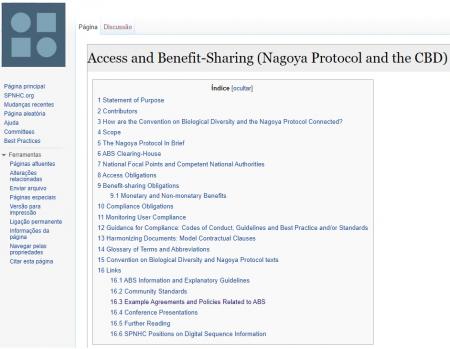Access and Benefit-Sharing (Nagoya Protocol and the CBD)

“The CBD [Convention on Biological Diversity], which came into force 29 December 1993, reaffirmed that States hold sovereign rights over their biological resources, in accordance with the Charter of the United Nations and the principles of international law. Countries have the sovereign right to regulate or grant free access to Genetic Resources (GR) occurring inside their national territory (i.e., they determine who can collect biological material that contains genetic resources and what users are
allowed to do with it). The CBD has three objectives:
Conservation of biological diversity Sustainable use of its components Fair and equitable sharing of benefits arising out of the utilization of genetic resources.
The NP [Nagoya Protocol] was developed to implement legal measures in user countries, mainly to ensure compliance with the third CBD objective, fair and equitable benefit-sharing. It establishes a legal framework for access to genetic resources and benefit-sharing (ABS): it requires countries to clarify access procedures, to share benefits that arise from utilization of GR, and to ensure that users comply with provider country ABS laws. The NP came into force on 12 October 2014.
Natural history collections are affected by the CBD, the NP and all of the various national ABS laws that have been developed in response to them. Associations such as SPNHC have an important role to play in helping institutions, curators and researchers understand the issues and their obligations, and can share guidance, codes of conduct, model agreements and experience.”
